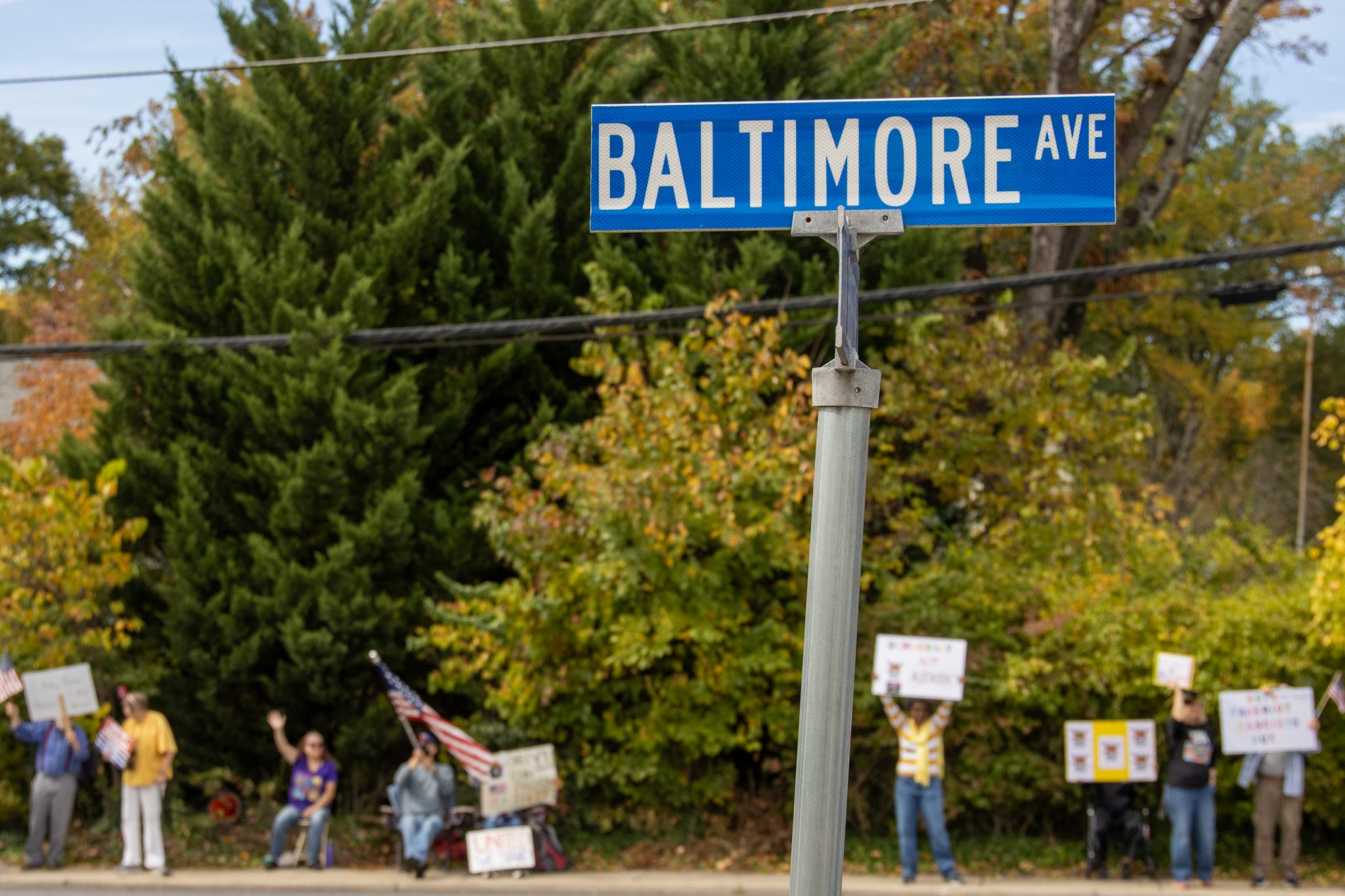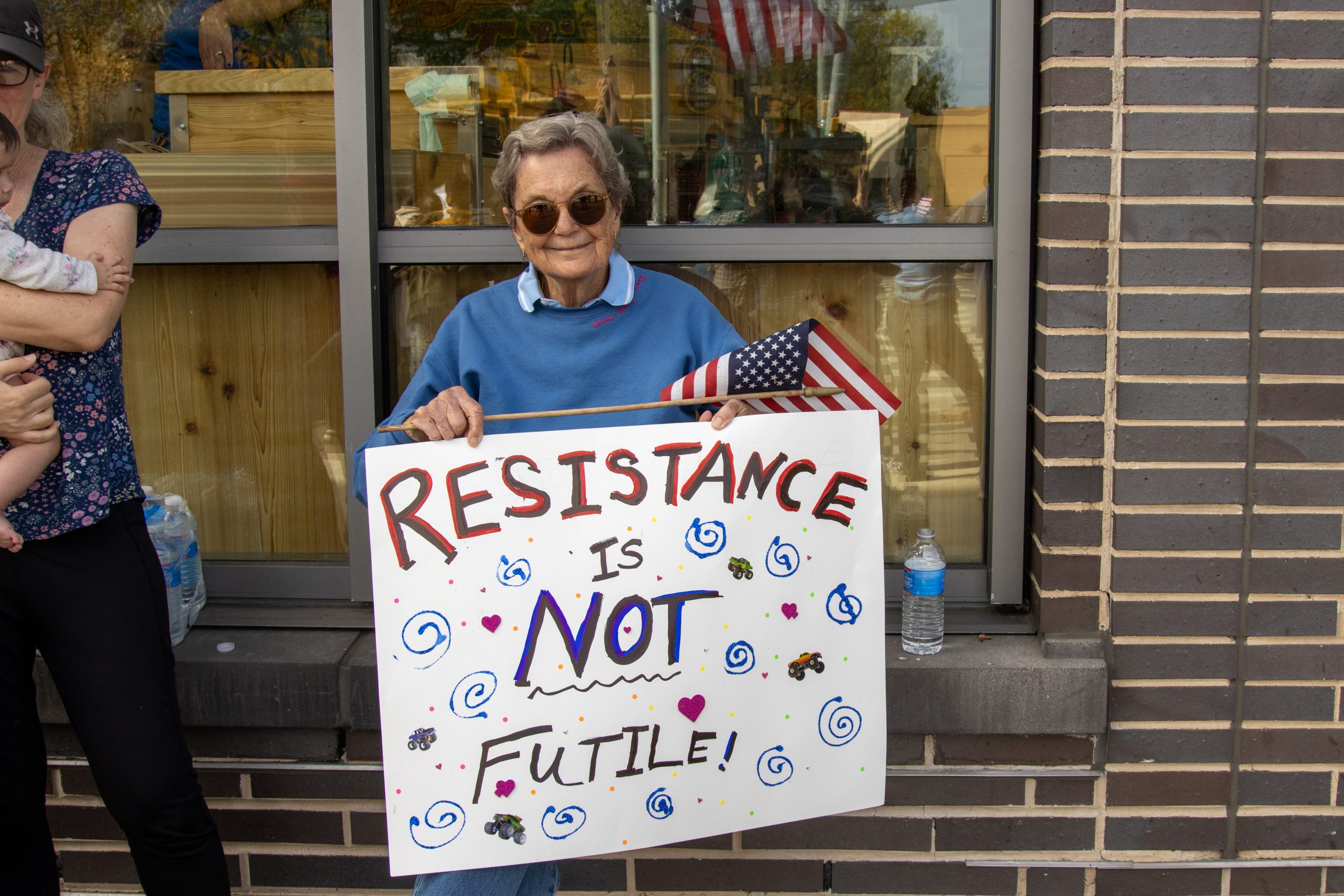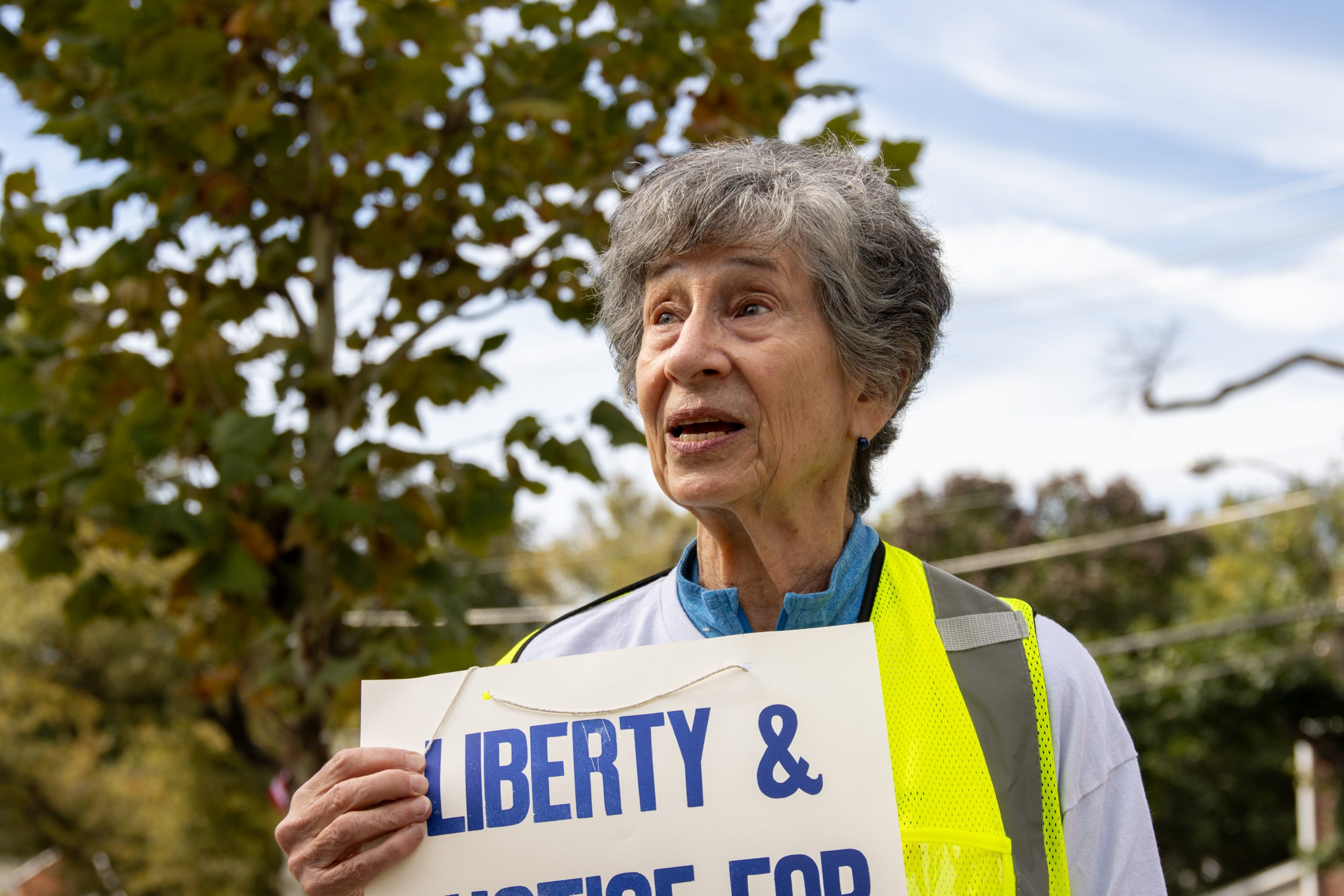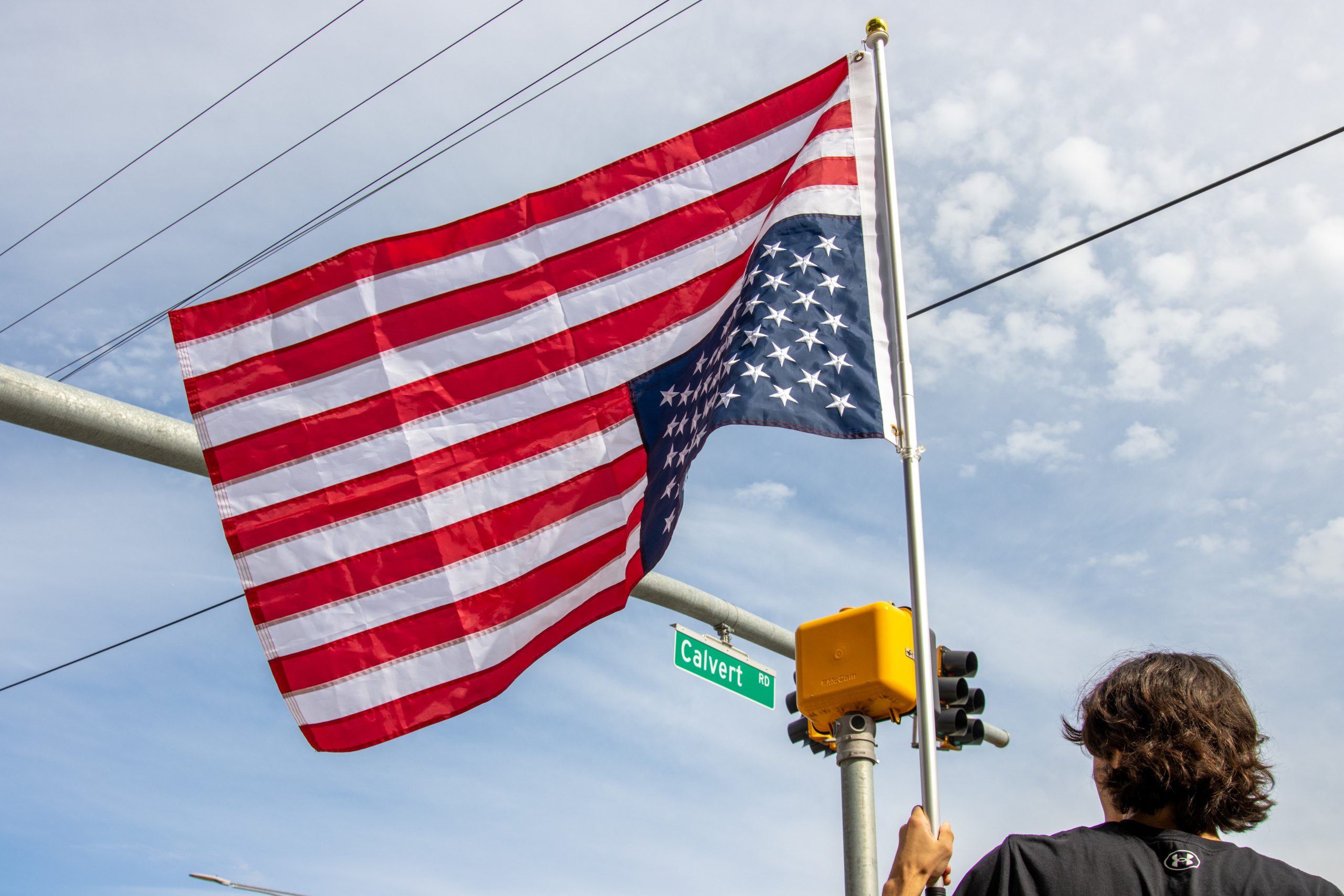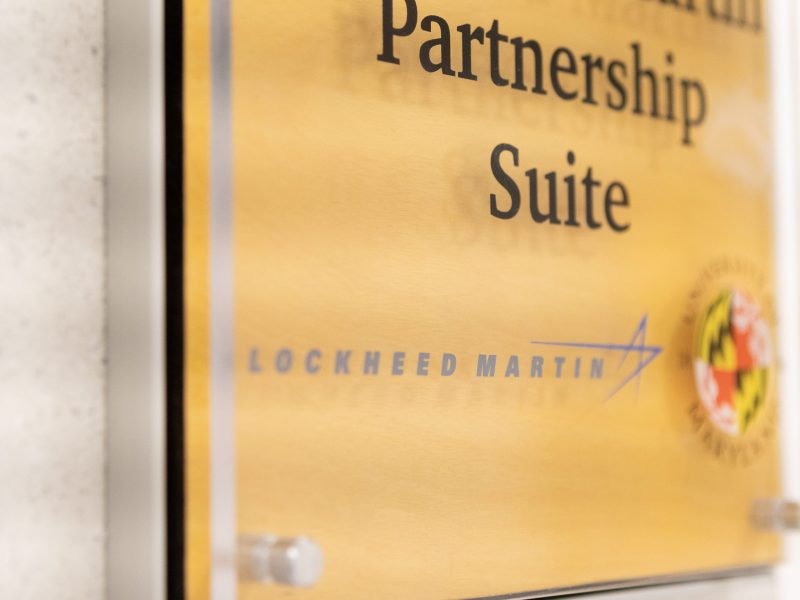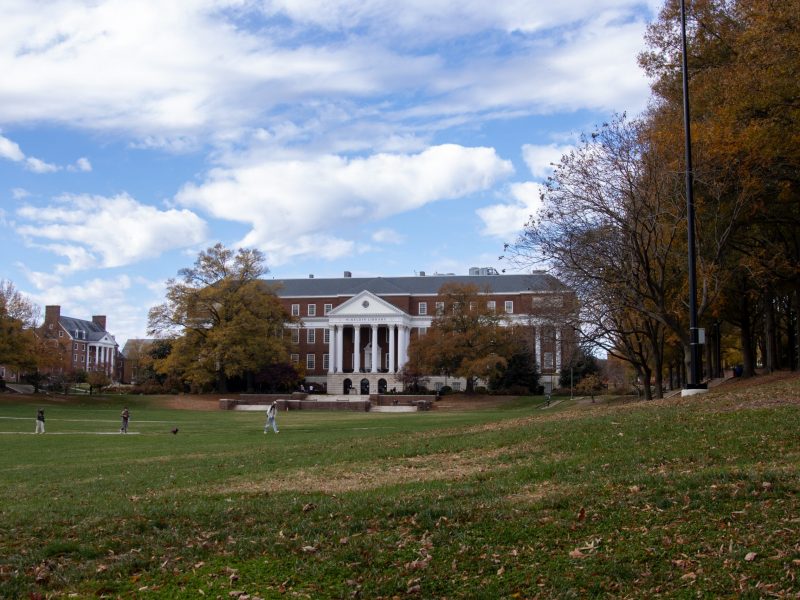Sporadic honks echoed down Route 1 in College Park on Saturday as cars driving by signaled their support for community members participating in “No Kings” protests.
From the Washington, D.C., border to College Park, nearly 1,500 Prince George’s County community members gathered along five miles of Route 1 to protest President Donald Trump and demand support for democracy. Saturday’s rally was one of thousands across the United States intended to stand up against the Trump administration’s actions and agenda.
The protest was the largest turnout to date for Indivisible Route 1 Corridor, an advocacy coalition in Prince George’s County that peacefully argues for democracy, according to University of Maryland professor and Indivisible member Louiqa Rashid. Young children, college students and senior citizens rallied along the road to support the cause.
Laura Usher, a member of Indivisible’s leadership team, was one of the main organizers for the protests across Prince George’s County.
Usher said she volunteers for Indivisible because she noticed people in her community being negatively affected by Trump’s return to office.
“I jumped on board to be one of the co-leaders because I really wanted to build a community to empower people,” she told The Diamondback.
The first “No Kings” protests were held nationwide on June 14 to coincide with Trump’s parade celebrating the U.S. military’s 250th birthday. No Kings’ website said the protests “drowned out” Trump’s parade and became “the strength of a movement rising against his authoritarian power grabs.”
[Experts warn education cuts, student loan changes could make it harder to attend college]
The local protest on Saturday featured multiple primary gathering points, including one in front of the Trader Joe’s in College Park.
Senior public health science major Maya Hoffman stood in front of the grocery store and held up a homemade cardboard sign that read “NO KINGS, liberty for all.” Hoffman said she attended the protest to show her support for county residents and university community members who have been affected by Trump’s crackdowns on education.
Since Trump returned to office in January, the administration has canceled research grants, revoked and restricted international student visas and worked to dismantle the U.S. Department of Education.
“Local action and community organizing is really important to feeling connected and taking agency over our situation,” she said. “It’s really incredible.”
Former women, gender and sexuality studies professor Deborah Rosenfelt said she appreciated the variety of people that showed up for the protests.
Rosenfelt is a marshal for Indivisible Route 1 Corridor and a co-leader of Bend the Arc: Jewish Action Maryland, a chapter of a national organization that unites Jewish citizens to fight against racism, white supremacy and antisemitism in the United States.
”It’s really important for people to turn out in droves to give each other moral support to keep resisting authoritarianism,” she said. “We have a special interest in the fact that the right has been using a false claim that they care about Jewish safety to justify some of the worst things they’re doing, especially on college campuses.”
[Gov. Moore promises to fight Trump’s intended National Guard deployment in Baltimore]
Across the country, some students with visas and federally-funded scholarships have been reluctant to attend campus organizations and protests due to the Trump administration’s threats against free speech. Many diversity, equity and inclusion programs have been renamed — including at this university — or shuttered altogether.
Members of this university’s Graduate Labor Union gathered outside of Trader Joe’s to protest for “a more progressive world,” said English doctoral student Declan Langton.
Langton waved around a red sign quoting the Declaration of Independence that read “It is [our] duty to throw off such Government.” They said showing up for events like “No Kings” protests can help make people feel less alone by creating community.
“It’s not just you alone in your room, but it’s you and people you’ve never met before,” Langton said. “It’s your friends, it’s your faculty members and it’s people you don’t even know driving by. It’s just really special.”
